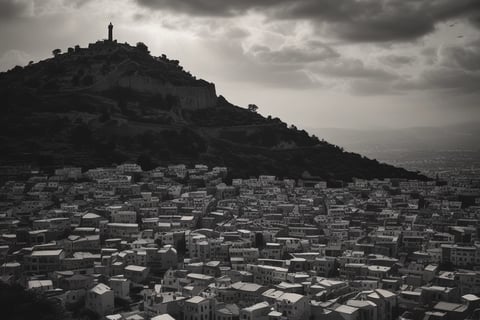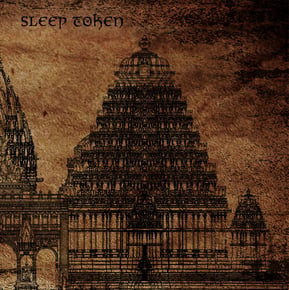

Calcutta
verse
I am caught, tangled in
Wrapped and quartered
Tripping up and over
Time, lived again
For just a moment
Missing pieces find me
I sweat, and I ache for your eyes and the way you breathe
chorus
And I wake, say your name
And I wake, say your name
verse
You are more than warm belief
Melting skywards
More than silence broken
I′m whole again
For just a moment
'Til the morning comes
chorus
And I wake, say your name
And I wake, saying your name
verse
Oh, she said you′d better believe it
I said you don't know
Oh, you said you'd better be there
I said you don′t even know
chorus
Time, lived again
For just a moment
Missing pieces find me
And I′m whole again
For just a moment
Missing pieces find me
outro
Time, lived again
For just a moment
Missing pieces find me
And I'm whole again
Whole again
Whole again
Calcutta – The Land of Kali
Calcutta isn’t a song it’s a coded prayer.
This was one of first clues to the connection of Kali.
A hidden offering to something ancient and eternal.
Something worshiped, feared, and loved in equal measure.
It’s invoking a deeper archetype: a space where suffering and transcendence meet, where devotion takes on a brutal, beautiful form.
The name Calcutta —
or Kolkata —
is not random.
It’s one of the spiritual hearts of India —
a city where the goddess Kali is revered as the embodiment of destruction, death, time, and rebirth. Its where The Kalighat Kali Temple is located, one of the most important and powerful shrines to Kali in the world.
The artwork?
Not random either.
The intricate structure echoes the ancient temple complexes found in Kolkata —
buildings dedicated to deities like Kali.
And the lyrics?
They're not a love song in the way we’re used to hearing.
They're a surrender.
An annihilation of self.
A yearning to be destroyed and remade by the touch of a divine, terrifying love.
Exactly what Kali offers in her embrace:
the end of the false self,
the beginning of truth.

Nazareth
verse
And I′ll see you when the wrath comes
Knocking on your bedroom door with money
Building you a kingdom
Dripping from the open mouth, I'll show you
What you look like from the inside
And I′ll see you when the wrath comes
Around
chorus
Tonight, tonight
Tonight you'll have the answer
Tonight, tonight (tonight)
Tonight you'll have the answer
verse
Let′s load the gun
Make her eat the tape in the bathroom mirror
See if she can guess what
A hollow point does to a naked body
Let′s fuck her up
Manifest pain at the core of pleasure
I'll see you when the wrath comes
Around
chorus
Tonight, tonight
Tonight you′ll have the answer
Tonight, tonight (tonight)
Tonight you'll have the answer
outro
Let′s load the gun (they won't be missing you)
(They won′t be missing you)
Let's load the gun (they won't be missing you)
(They won′t be missing you)
Let′s load the gun (see you when the wrath comes)
(See you when the wrath comes)
Let's load the gun (see you when the wrath comes)
In Nazareth, it feels like two voices are clashing:
The voice of the worshipper (Vessel)
and the voice of the Entity (Kali, or Sleep) guiding, demanding, commanding the destruction.
Vessel is narrating the experience of being broken open.
The Entity is guiding the process mercilessly.
Like a god who demands not just your love — but your bones, your blood, your soul.
Now the lyrics, piece by piece:
"And I'll see you when the wrath comes / Knocking on your bedroom door with money / Building you a kingdom / Dripping from the open mouth, I'll show you / What you look like from the inside."
Meaning:
Wrath is coming — the consequences, the force that cannot be stopped.
Money, kingdom, open mouth — symbols of false power, ego, vanity.
Kali (or the Entity) is not impressed by external success — she wants the truth beneath it.
"I’ll show you what you look like from the inside" —
she will rip away the façade.
She will show Vessel (or the person) their true self — ugly, broken, unfinished.
(That’s what surrender is. Seeing yourself fully naked, spiritually, for the first time.)
"Tonight you'll have the answer."
Meaning:
The moment of reckoning is here.
No more hiding.
No more lies.
Tonight you either surrender fully or you are destroyed.
"Let’s load the gun / Make her eat the tape in the bathroom mirror / See if she can guess what a hollow point does to a naked body."
Meaning:
The gun — a violent symbol of obliteration of the false self.
Tape in the bathroom mirror — symbolism of covering up the truth. (Mirrors reflect truth — tape over it means hiding, denial.)
"Make her eat the tape" — force the false self to confront reality.
No more hiding. No more illusions.
"Hollow point" — hollow points explode inside the body —
an image of how devastating and complete the destruction must be.
(Important: We don’t believe this is about literal violence toward a woman. It’s spiritual language — Vessel’s feminine side, his ego, his illusions being ripped apart violently, mercilessly.)
"They won't be missing you.”
Meaning:
The old self will die.
And no one will miss the false version of you.
You must let it go.
No sentimentality.
No regret.
"See you when the wrath comes."
Meaning:
The Entity promises she will be there —
but she will be there as fire, as chaos, as the storm that remakes him.
Not as comfort.
As pure truth.
Big Emotional Conclusion:
Nazareth is the ritual sacrifice of the false self.
It’s not a sweet prayer — it’s a brutal, violent spiritual execution.
The ego is shattered.
The illusions are torn down.
The worshiper is stripped to nothing.
Only then can rebirth begin through Kali.



Jericho
Verse
You could stay alive
Just tell me that you notice
Even in the dark
The way I left you breathing
Course
Sometimes when we touch
Everything we love resets
It′s only just enough
Even when we run with death
Verse
We could be released
Flowing over sorrow days
We could stay suspended
Even when the bough breaks
Course
Sometimes when we touch
Everything we love resets
It's only just enough
Even when we run with death
Bridge
Don′t lie to me
Don't lie to me
Don't lie to me
Don′t lie to me
Don′t lie to me
Don't lie to me
Don′t lie to me
Don't lie to me
Chorus
Everything we touch turns water into blood
You try to look away from even when the bough breaks
You don′t really love, you just hate to be alone
You hate to be alone
You hate to be alone
Everything we touch turns water into blood
You try to look away from even when the bough breaks
You don't really love, you just hate to be alone
You hate to be alone
You hate to be alone
Everything we touch turns water into blood
You try to look away from even when the bough breaks
You don′t really love, you just hate to be alone
You hate to be alone
You hate to be alone
Everything we touch turns water into blood
You try to look away from even when the bough breaks
You don't really love, you just hate to be alone
You hate to be alone
You hate to be alone
Jericho — historically and spiritually is the city of walls.
In the Bible (Book of Joshua), Jericho was a fortified city.
God commanded Joshua to march around the city walls for seven days, blowing trumpets.
On the seventh day, the walls collapsed without a single stone being touched.
The meaning?
Faith brought down the walls.
Not violence.
Not force.
Belief. Surrender. Devotion.
So Jericho symbolically it means:
Vessel starts behind his own emotional/spiritual walls.
He is closed off, fortified, stubborn.
The journey begins with those walls needing to fall — through faith, devotion, surrender.
It's the first act of worship.
The breaking open of the heart so that Sleep can reach him.
Jericho = The Fall of Self-Defence
In emotional terms, it’s this:
Vessel was fortified against love, against change, against divine surrender.
Through encountering this Entity (the force he worships — Kali? The Divine Feminine?),
he starts marching around his own walls.
He begins the slow, painful collapse of the ego, of pride, of fear.
Without Jericho falling first,
there is no transformation.
First the walls fall.
Then the soul can begin.
Jericho is first because before you can devote yourself,
before you can be destroyed and remade,
you have to let the walls fall.
You have to be vulnerable.
Breakable.
Open.
And that’s what "Jericho" marks.
The beginning of surrender.


